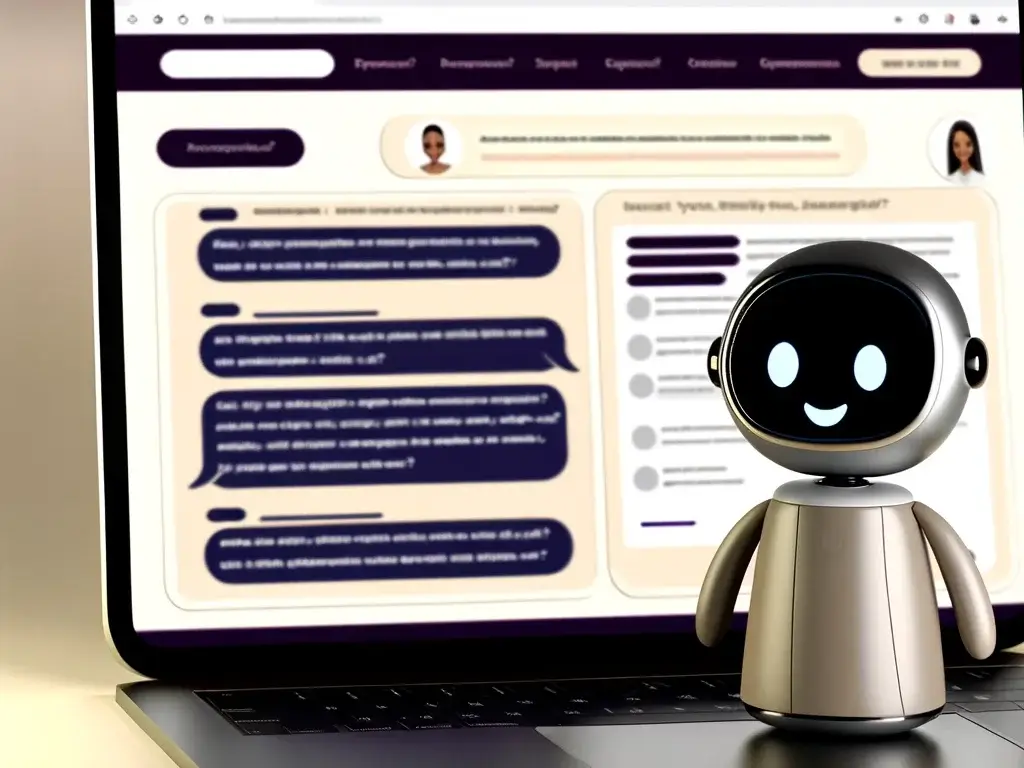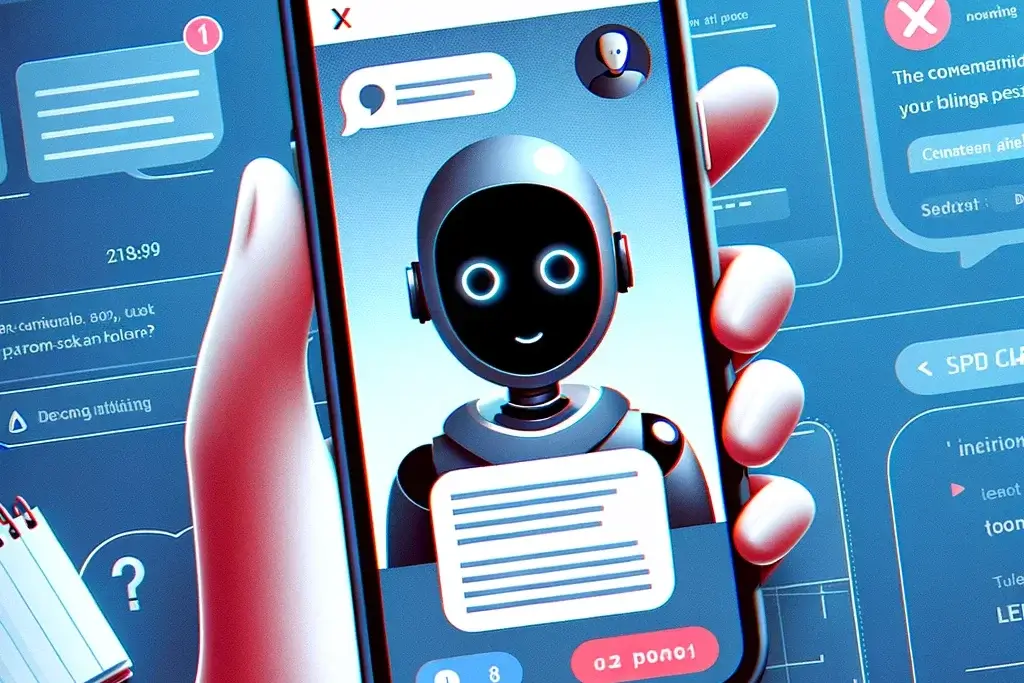Explore AI-powered Virtual Assistants for Business
Table of Content
Imagine having a tireless assistant by your side, available 24/7, who can answer customer queries, schedule meetings, and even generate sales leads. This isn’t science fiction – it’s the reality of AI virtual assistants in today’s business world.
You might be familiar with virtual assistants like Siri or Alexa in your personal life. But businesses are taking advantage of this powerful technology in a whole new way.
In this blog post, we’ll delve into the world of AI virtual assistants for businesses. We’ll explore what they are, how they work, and the diverse benefits they offer across various industries.

How AI Assistants Support your Growth
Gone are the days of rigid chatbots that only understood pre-programmed questions. AI virtual assistants powered by Natural Language Processing (NLP) can now analyze even complex inquiries and deliver accurate responses, regardless of phrasing or minor errors. For Example, a customer asking about return policy uniquely – an AI assistant can understand the intent behind the question and provide the correct information, exceeding the limitations of traditional chatbots.
This advanced capability extends beyond basic tasks. AI assistants can access and process vast amounts of data, allowing them to handle complex functions like scheduling appointments or managing customer details .Furthermore, AI assistants offer 24/7 support, ensuring your customers receive prompt and helpful responses whenever they need them, even outside of business hours. This exceptional level of service can significantly enhance the customer experience and build brand loyalty. In short, AI virtual assistants aren’t just tools for automation – they’re powerful assets that can empower your business to thrive in today’s dynamic market.
Conversational AI: The Language Behind the Assistant
At the heart of every intelligent virtual assistant lies a powerful technology called Conversational AI. This technology is built upon Natural Language Processing (NLP), the science of enabling computers to understand and process human language.
Conversational AI allows virtual assistants to move beyond simple keyword recognition and truly grasp the nuances of human communication. Imagine a virtual assistant that can understand the intent behind your questions, even if you don’t phrase them perfectly. That’s Conversational AI for you – it fosters natural-sounding interactions, similar to your experience with tools like ChatGPT or Bard.
For businesses, Virtual assistants powered by this technology can deliver swift and accurate answers to frequently asked customer questions, proactively surface relevant information, and even resolve interactions completely – all without human intervention. This not only streamlines operations but also enhances customer experience by providing quick and efficient support, while identifying patterns in customer queries that can be used to continuously improve future interactions. With its wide-ranging benefits, Conversational AI is rapidly becoming an essential tool across industries. Are you ready to leverage this powerful technology and elevate your customer service or sales operations.
A Look at Different Virtual Assistant Types
The world of AI virtual assistants isn’t a one-size-fits-all solution. Different AI assistants specialize in specific tasks, offering businesses a range of benefits. Here’s a breakdown of some popular types:
1. AI Virtual Assistant – Personalized Learning
This type of AI assistant steps into the role of a virtual tutor or study buddy. They can adapt learning materials to an individual’s needs and progress, providing personalized feedback and guidance to help users improve their skills. This allows for a more engaging and effective learning experience, tailored to each user’s unique learning style and pace.
2. AI Virtual Assistant – Sales
Sales AI assistants can be deployed strategically throughout the sales funnel. They can answer customer questions about products or services directly on your website, reducing friction during the checkout process. Additionally, some AI solutions can also work behind the scenes, providing sales representatives with real-time information and relevant customer data to personalize their approach and close deals more effectively.

3. AI Virtual Assistant – Internal Operations
These assistants become your digital employee assistants, streamlining internal workflows. They can handle tasks like scheduling meetings, booking travel arrangements, and answering employee questions about company policies or procedures. Imagine having a tireless assistant who can handle the administrative burden, freeing up your employees to focus on their core tasks and strategic initiatives.
4. AI Virtual Assistant – Customer Support
These assistants can deflect routine inquiries by providing instant answers to frequently asked questions. They can also empower customers to self-service by surfacing relevant information and data, like setting up accounts or managing subscriptions. Think of them at the grocery store, answering questions before you need to speak with an employee. But customer support AI goes a step further – can also support live agents by automatically suggesting relevant content and materials during customer interactions. This empowers agents to resolve issues faster and provide a more efficient experience.

Benefits of AI Assistants Across Industries
AI virtual assistants are rapidly transforming industries, streamlining processes and enhancing experiences for both businesses and consumers. Let’s delve into how these intelligent tools deliver value across three key sectors: marketing, insurance, and healthcare.
1. AI Virtual Assistants in Marketing
Marketing thrives on customer engagement. AI virtual assistants can be the key to unlocking personalized interactions at scale. Imagine a virtual assistant embedded on a company website, offering product recommendations tailored to a customer’s browsing history. This personalized touch fosters deeper customer connections and ultimately drives sales.
Beyond websites, AI virtual assistants can be deployed across social media platforms, engaging with customers in real-time. They can answer product inquiries, schedule appointments, and even handle simple customer service requests. This 24/7 availability ensures continuous customer support, fostering brand loyalty and satisfaction.

2. AI Virtual Assistants in Insurance
Similar benefits extend to the insurance industry, where customers often have urgent and complex questions about policies and regulations. Imagine seeking a life insurance quote. Traditionally, factors like age, health, and profession would require an agent’s calculation. Here, AI assistants become game changers. They can ingest your information and connect to backend systems, generating instant premium estimates – a process that would typically involve significant human effort.
For insurance agents, the multitude of variables and processes becomes effortlessly manageable. AI assistants can act as instant knowledge bases, enabling agents to navigate complex scenarios and deliver faster service.

3. AI Virtual Assistants in HealthCare
In the time-sensitive world of healthcare, immediate and accurate information is paramount. AI virtual assistants shine in this area. From a patient’s perspective, they can expedite triage by gathering medical information and symptoms.
Imagine experiencing a severe cough and needing to reach a doctor digitally. An AI assistant can collect your information and route it to a nurse who can then inquire about specific symptoms through the same platform. This streamlines the process, leading to faster diagnosis and treatment. For healthcare professionals, AI assistants act as real-time knowledge bases. Based on a patient’s listed symptoms, the assistant can provide nurses with instant guidance on treatment options, or even the nearest emergency room location. This empowers nurses to deliver more efficient and informative care.

Conclusion
The world of business is constantly evolving, and the need for efficiency and exceptional customer service is paramount. AI virtual assistants have emerged not just as a helpful tool, but as a strategic advantage.
By implementing AI assistants, you’re not just automating simple tasks; you’re freeing up your human workforce to focus on higher-level cognitive tasks. This allows your team to tackle complex customer issues, build stronger relationships, and ultimately drive greater business value.
The benefits extend beyond immediate customer interactions. AI assistants can streamline internal workflows, gather valuable customer data for deeper insights, and even personalize the customer journey. This comprehensive approach to customer experience sets you apart from competitors who haven’t embraced AI technology.Don’t just keep pace with the changing business landscape, take the lead. Explore how AI virtual assistants can transform your operations and unlock a new level of efficiency, customer satisfaction, and competitive advantage. Consider solutions like Robylon’s AI-powered virtual assistant, designed to seamlessly integrate with your existing workflows and empower your team to achieve more.







